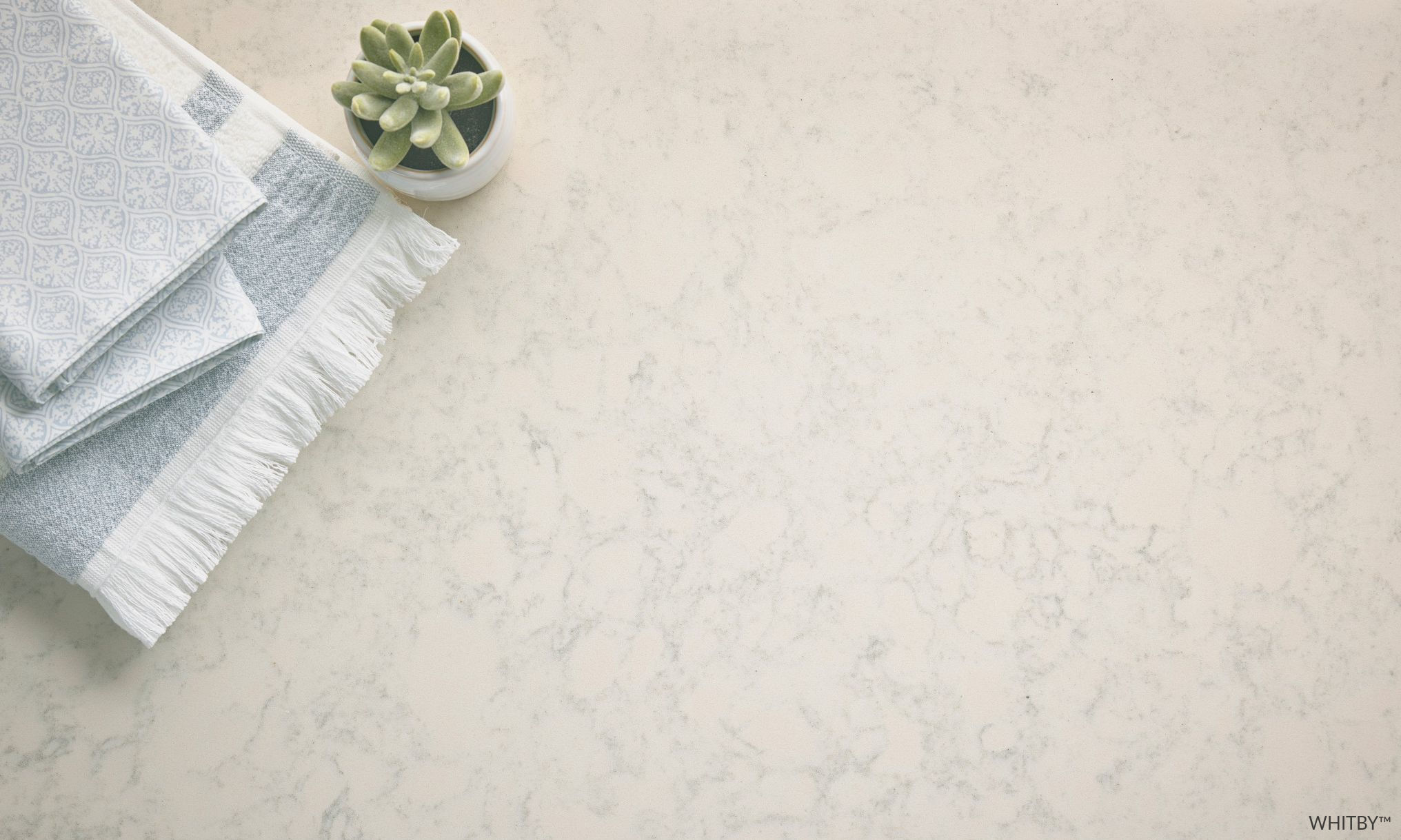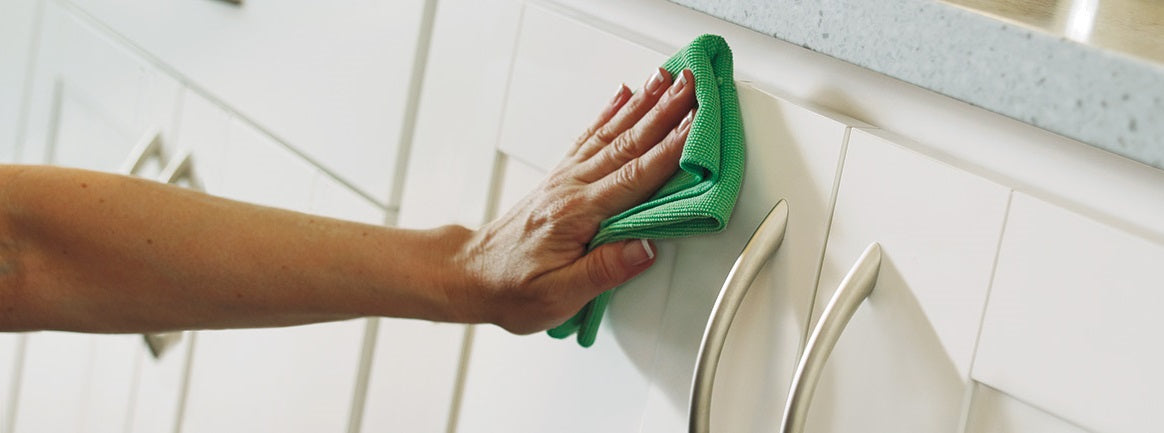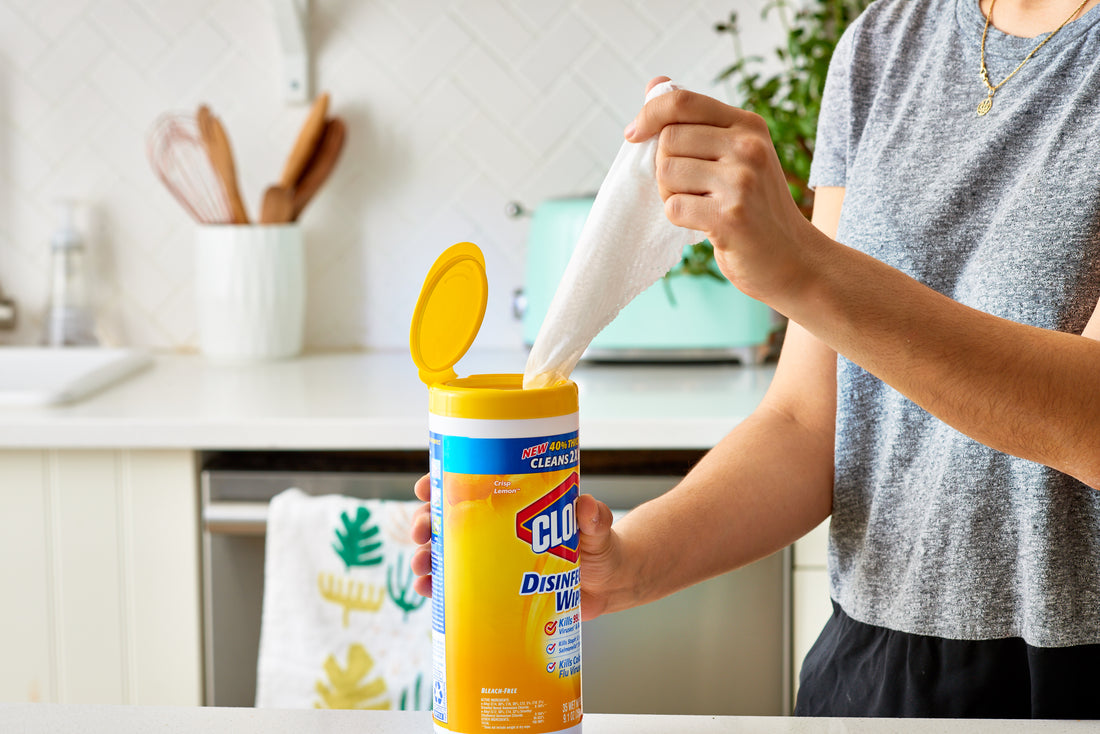To protect yourself effectively against novel coronavirus, the Centers of Disease Control and Prevention recommends washing your hands often for at least 20 seconds each time, avoiding close contact with people who are sick or if you yourself are sick, practice social distancing, and disinfecting frequently touched surfaces daily- like your countertops.
Want to know how to keep your countertops free of virus, without putting them at risk? Read below to learn tips to keep your home and business safe from COVID-19, based on the material of the countertop and CDC guidelines.

How to Clean and Disinfect Cambria Quartz Countertops
Harsh and heavy-duty cleaners are unnecessary with Cambria. For cleanup with ease, all you need is soap, warm water, and a soft cloth. If you wish to take the extra step of disinfecting your surfaces, please see the following list of Cambria-approved disinfectants that meet Centers for Disease Control and Prevention (CDC) guidelines.
- 70 percent isopropyl rubbing alcohol
- Homemade spray mixture of 4 teaspoons of bleach and 1 quart of water. Let this solution sit on the surface for 30 seconds, then wipe with a dry cloth. Next, rinse the surface with clean water and dry with a soft cloth.
- Lysol® Disinfectant Spray
- Professional Lysol® Disinfectant Spray
Never use full strength bleach or abrasive powders or scrubs like Comet®, Soft Scrub®, or S.O.S.® pads. Such products will cause the surface to appear dull or inconsistent. See our list of Cambria's Approved Cleaners.

How to Clean and Disinfect Granite Countertops
DO NOT use vinegar or bleach on granite countertops. These products will eat through any sealant that you applied. This means that it will be completely susceptible to staining. For those of you that do not feel clean without using bleach, you can use Clorox wipes because they are diluted. You may want to follow that up with your store bought granite cleaner. These are specifically for granite and take into consideration the chemical composition of the sealants.

How to Clean WilsonArt Laminate Countertops
Prolonged exposure to bleach will cause discoloration. WilsonArt recommends the use of the following household cleaners:
- Windex
- Glass Plus
- Fantastik
- Mr. Clean
- Formula 409
- Isopropyl Alcohol (Isopropanol).
How to Clean Marble Countertops
Bleach, ammonia, hydrogen peroxide and vinegar are too harsh (acidic or caustic) for use on marble and will definitely damage the marble countertop, or floor finish. The chemical burn or etching will require re-polishing of the surface. The best, safest option is warm water and soap. Or look for professional marble cleaners.
How to Clean and Disinfect Wood Countertops
Butcher blocks are naturally antimicrobial. Clean with soap and water. Oil with butcher block oil to keep the wood stable and healthy.
How to Clean and Disinfect Copper, Zinc, Brass, Bronze, Nickel Surfaces
These metals have natural antimicrobial properties and do not need special treatment. Make sure to clean regularly with a mild cleanser according to manufacturer instructions. This goes for copper sinks as well.
How to Clean and Disinfect Stainless Steel & Pewter Surfaces
Stainless steel and pewter are not antimicrobial but can be treated with an all-purpose cleaner with disinfectant as per CDC guidelines. This goes for your stainless steel sinks as well.
________________________________________________
Other Useful Information
If you're looking for products to clean soft (porous) surfaces such as carpets, rugs, and drapes, you can find CDC guidelines here and recommended products here.
Do not opt to use your kitchen sponge for cleaning. That thing is filled with germs & bacteria! Microwave it, or throw it out and get a new one. If you do want to clean with a sponge, have one designated for your COVID-19 defense.



